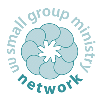Expanding the influence of small group ministry in times such as these through sharing session plans that we have created from our own needs is how we use one of the most dynamic tools that we have. Some of the quotes are taken from several session plans that are available on the UU SGM Network website. We are looking forward to adding more sessions as you send them in (office@smallgroupministry.net). We anticipate a diversity of approaches, as we have so much from our Unitarian Universalism on which to draw.
I have been struggling with how to react when people show or express despair over the current political mood and turmoil. How do I relate to it all myself? What is the basis for my stance, my actions or non-actions? The following is an attempt to provide a base from which to act and respond, regardless of the issue at hand. And what better place or way to develop a response than through Small Group Ministry? And what better base than the UU Principles? So here is a preview of a session plan that can be used with a total group or with regular small groups. It may take more than one session. The full session plan is on the Network website.
From Small Group Ministry:
We learned how to be in relationship with each other in our small groups, and practiced
how to listen without needing to advise or respond.
how to share from our hearts.
Our new skills carried into our congregational behavior, and we modeled
as group participants each time that we met,
as we listened to each other in times of challenge and times of celebration,
all aspects of our congregational life, including all parts of our congregation.
Now we are turning to small group ministry as a place where we can grapple with the world around us,
the uncertainty of seeing our values challenged,
the animosity, fear, and rage that is part of public and private rhetoric, and
the absolute certainly in the rightness of opposing positions.
Now we are taking small group ministry out into the world, and we are
inviting small group ministry into how we live in the present time and place,
constantly using what we have learned in our groups and congregation as we engage
with people who differ from us within our congregations and beyond.
What can you take from your SGM experience into your life as you encounter the things that are contrary to your sense of well-being and security?
UU Principles provide solid basis for understanding and acting. Three of the Principles are especially relevant to responding and living with and in the chaos of our society, generally and related to specific issues. The Principles are readily available to us, waiting to be employed as we live out our faith.
Principle: Inherent worth and dignity of every person
Glenn Turner, in "Finding a Footing" session plan "All God's Children Have a Place in the Choir" by Bill Staines (© 1983 Mineral River Music (BMI). Various versions are available, and I would encourage including all of the verses.
This song declares that 1) everyone is needed, and that 2) we bring differing abilities and perspectives. This starts with the presumption of diversity of those who are present and moves to the understanding that there is a place for each and every one.
Within the wide diversity, the inherent worth and dignity addresses our basic belief that human nature is essentially good. This differs from some religious traditions that focus on the concept that we are born in sin, or are essentially bad. The challenge is to accept people as they are, including characteristics and positions that differ from mine, without judgment or blame.
The inherent worth and dignity applies to ourselves as much - maybe more - than to others. Understanding and believing in our own worth and dignity recognizes that our views, values, and perspectives matter. Understanding, accepting, and respecting ourselves allows the space and opportunity to be open to others. We do not have to "prove" ourselves, rather just be ourselves.
How does your view of human nature affect your ability to interact with others whose views may greatly differ from yours?
What is your view of yourself and your own level of self-respect?
Principle: The right of conscience and the use of the democratic process within our congregations and in society at large
Democratic process relates to having a say, a right, and obligation to participate in decision-making. It does not guarantee that decisions will go the way that I would like. However, involvement is the key component: If I have not been involved, do I really have a right to complain if the outcome is contrary to my wish?
We all have some pieces of the truth, or the "best way" - you, they, me - and no one has ALL of the perspectives or answers or truth. This creates the impetus to learn about each other's perspective to get to the commonalities, the truth that is shared - the "what". The problems arise in addressing the "how". To focus on reaching the shared concern, I must go back to the inherent worth and dignity of every person, assumption of good faith and a deep spiritual practice that also holds me accountable to the principles.
In "The Destiny of Our Democracy," the Rev. William G. Sinkford, President, Unitarian Universalist Association, puts it this way (November 3, 2004 - Boston, MA, excerpts.):
"The democratic process is an act of faith: not faith that any one point of view will prevail, but faith that the will of the people will point us toward the Beloved Community.... Not only is democracy an act of faith, it is an imperfect process...This national election, like the last, showed us how far we have to go to enfranchise all of our people. But I take great hope from the relationships our congregations developed in this work. ...But Unitarian Universalism is liberal religion, not liberal politics. Today, while so many celebrate and so many grieve, I hope that Unitarian Universalists will hold fast to our calling. Political sound bites cannot contain it. Party designations do not describe it. Few votes were cast yesterday without reservations in the heart. Our congregations need to be religious homes where the reality of both joy and grief, certainty and uncertainty, can be present."
How does the democratic process become a spiritual practice?
How can I honor the process as I work toward common understanding?
How accountable am I for my participation or lack thereof?
Principle: Respect for interdependent web of existence of which we are a part.
Whatever we do or do not do, however we treat another who agrees or disagrees with us, the attitude that we bring to interactions in these times influences the outcome in the present and into the future. When I presume that everyone in the room shares my perspectives, there may be a disconnect. They may not understand my position, so that clarity is a necessity - and the ability to recognize differences in interpretations and to explain in a different way.
I invite you to use Small Group Ministry in creative ways to embrace the challenges of this time. Following are session plans that are on the Network website now, and we hope to offer additional sessions from you.
Session plan references:
"A Space to Sit," Lutherville, ME, Robin Sinn, Nov. 2016
"After a Vote," Augusta, ME, Rev. Helen Zidowecki, Nov. 2009
"Finding a Footing in a Sharply Divided Nation" Auburn, ME, Rev. Glenn Turner
"Finding Balance, Living with Polarities - Freedom and Accountability, "Eugene, OR, March 2010
"Politics," Stony Brook, NY (Allen, Rev. Margie; Anderson, Rev. Dr. Linda), 2/22/2015
"Political and Social Implications of Differing Conservative and Liberal Viewpoints on Human Nature," Auburn, ME, Rev. Glenn Turner
"The Destiny of Our Democracy -- A Post [2004] Election Session," Peter Freedman Bowden, November 2004
The Session Plan, "Small Group Ministry - For Times Such as These!"







